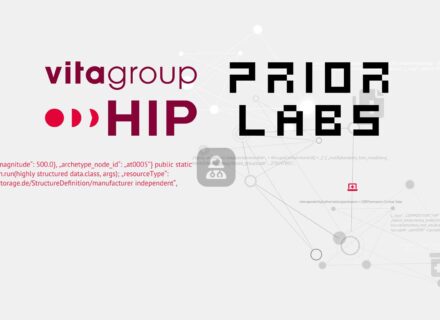Lorem ipsum dolor sit amet
Lorem ipsum dolor sit amet, consetetur sadipscing elitr, sed diam nonumy eirmod tempor invidunt ut labore et dolore magna aliquyam erat, sed diam voluptua. At vero eos et accusam et justo duo dolores et ea rebum. Stet clita kasd gubergren, no sea takimata sanctus est Lorem ipsum dolor sit amet. Lorem ipsum dolor sit amet, consetetur sadipscing elitr, sed diam nonumy eirmod tempor invidunt ut labore et dolore magna aliquyam erat, sed diam voluptua. At vero eos et accusam et justo duo dolores et ea rebum. Stet clita kasd gubergren, no sea takimata sanctus est Lorem ipsum dolor sit amet.
How will open standards shape AI’s future in healthcare?
The major problem we have at the moment with AI is that we need a certain access to data and therefore we need huge databases. If they are restricted like they are in some countries, we will get into problems. Hence, we can’t do the AI models. Therefore, open access is the key for the future to generate really good AI models which really help the patient.
What role do open platforms play in emergency rooms?
In the emergency rooms we have more and more problems because we see stuff shortages, we see too many patients at the same time. Therefore, data driven diagnosis and treatment is something which can really help to cover such great number of patients. Especially, for example, now in the winter with the flu season. It is therefore mandatory that we have it in the future.
How will AI impact the work in emergency rooms?
I would not only restrict that to the emergency room, because AI will help us in medicine (overall). In the first step – and that is something for the next five years – you get some recommendations from AI (such as) the patient might have, for example, a flu or might have pneumonia. That is the first step I would see for the next five years.
In the longer perspective, I guess we will come to the point where we have, in a way, an AI doctor who makes recommendations. Here we will get into a lot of discussions within the next five to 10 years (about who is responsible for the recommendations): if an AI doctor, for example, is responsible, which means the (AI) company is responsible, or if still the doctor is in charge and the nurse is in charge. That is something which is a very interesting discussion, and I have no clue at the moment how it will end.
What’s key to successful digital transformation?
The most important point is that we have to be really open minded now, especially in Europe where we are usually a little bit more restrictive than, for example, in the US or in India or in China. We have to be open minded so that we can really use the data to create good AI models that really help the patient. That is something we have to change our mindset on a little bit in Europe.



